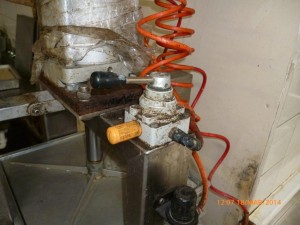A new study from the University of Guelph has found soy can limit the growth of some bacteria, such as listeria and pseudomonas, and it does it better than chemical-based agents.
 “Current synthetic-based, chemical-based anti-microbial agents kill bacteria indiscriminately, whether they are pathogenic or beneficial,” researcher Suresh Neethirajan said.
“Current synthetic-based, chemical-based anti-microbial agents kill bacteria indiscriminately, whether they are pathogenic or beneficial,” researcher Suresh Neethirajan said.
The body – and in particular, the intestines – need good bacteria to properly process the food we eat.
The compounds in soybeans, however, do not kill off all bacteria, just the bad ones, Neethirajan said.
Soybean derivatives are already used in a variety of products including canned foods, cooking oils, meat alternatives, cheeses, ice cream and baked goods.
Neethirajan, an engineering professor and director of the BioNano Laboratory at the university, said those with soy allergies need not worry about soy being used to prevent bacteria growth.
He said their method isolates the active component of the soybean from the protein that causes allergic reactions. The soy isoflavones that are chemically similar to estrogen are also weeded out.
What is left is a compound that naturally stops the bad bacteria.
Neethirajan’s study will appear in the July edition of the journal Biochemistry and Biophysics Reports.


 of food under insanitary conditions, has entered into a consent decree of permanent injunction in the U.S. District Court for the Southern District of California.
of food under insanitary conditions, has entered into a consent decree of permanent injunction in the U.S. District Court for the Southern District of California.